Advocacy
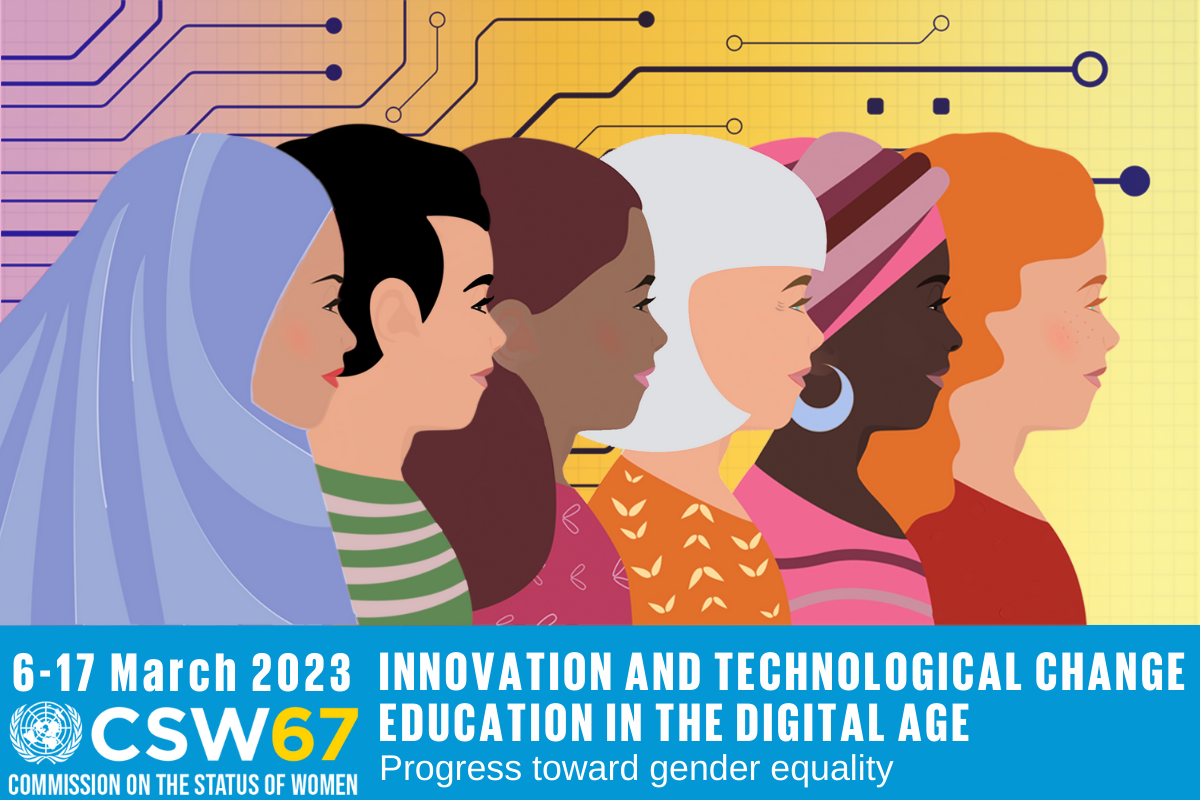
- Details
- By Cindy Piester
Sometimes when UU’s find each other, it clicks. When I, as a member of Unitarian Universalist for Just Economic Communities (UUJEC), joined the International Convocation of UU Women (ICUUW) in New York to take part in the United Nations Commission on the Status of Women (CSW) in March of 2023, it clicked. Women together addressing the challenges of our time takes courage and perseverance. In these dark times, truth telling is resistance, and it is happening every day.
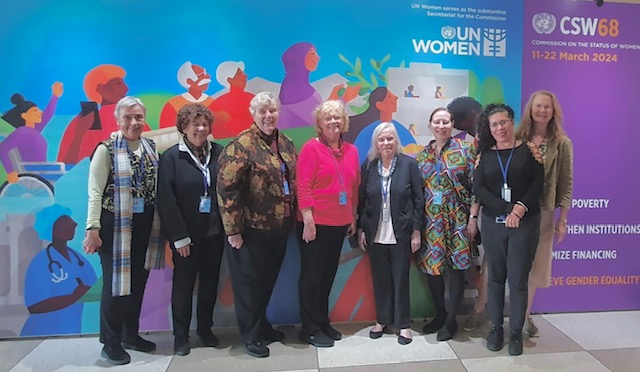
- Details
- By Rev. Carol Houston
Ensuring and Strengthening Access to Justice for All Women and Girls
The annual meeting of the United Nations Commission on the Status of Women (CSW) is the biggest women’s conference in the world. In March, thousands of women come to New York City to talk about gender equity, empowerment projects, education, healthcare, climate change, and all manner of topics around the needs and the strengths of women and girls. There are also demonstrations and wonderful opportunities for networking and advocacy.
Three ICUUW members first attended sessions in 2018, just there to learn. In 2025, there were 23 of us, organizing, teaching each other, and even offering questions or statements ( called “interventions”) in sessions. We are already well into the planning of the next CSW70 meeting, March 9-20, 2026. Even if you can’t come to New York, you can follow online a rich variety of sessions on UN Web TV and the NGO CSW Forum.
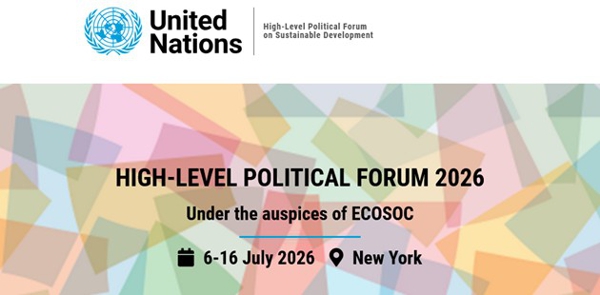
- Details
- By Carol Huston and Beth O'Connell, USA
A small group of ICUUW members attended the annual High Level Political Forum (HLPF) at United Nations (UN) headquarters in New York in July. One of the Sustainable Development Goals (SDG) under review this year was number 5 - Gender Equality and the Empowerment of Women and Girls.
The discussions emphasized that all sustainable development needs the talents and engagement of those who are women – half the human race. One interesting side event dealt with the issue of women's land ownership. In many countries it is still difficult for women to inherit land and to claim they are entitled to co-ownership with their husbands.
- Details
- By ICUUW Staff
ICUUW champions gender equality and the health and rights of women and girls. We connect people, ideas, and resources to drive solutions for girls and women.
Through advocacy and campaigning, ICUUW promotes the achievement of the United Nations Sustainable Development Goals (SDGs), especially Goal #5 (SDG5): “Achieve gender equality and empower all women and girls.”
As an organization in special consultative status with the UN Economic and Social Council (ECOSOC), ICUUW participates in the yearly sessions of the UN Commission on the Status of Women, the UN’s principal body dedicated to the promotion of gender equality and the empowerment of women and girls.
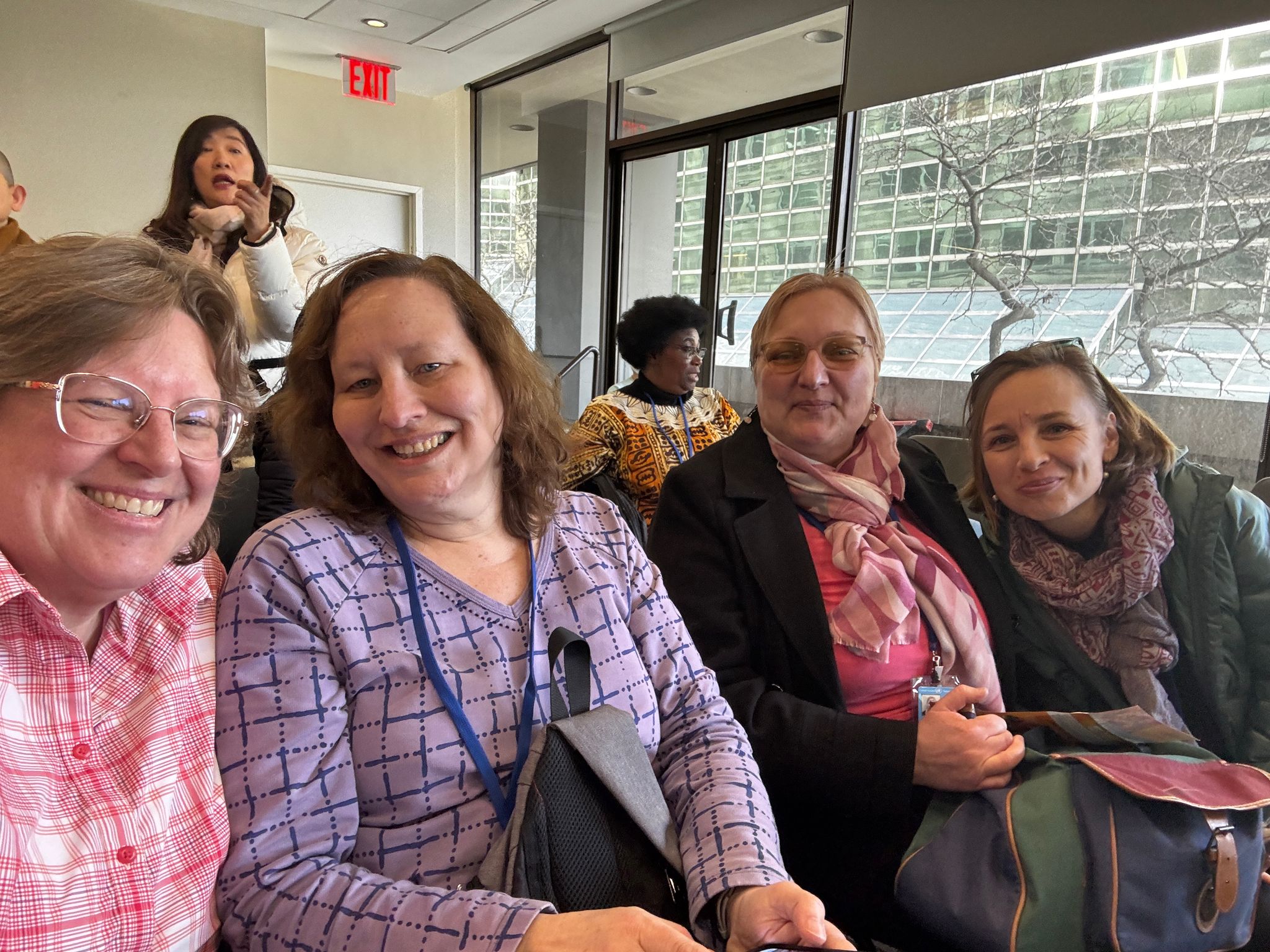
- Details
- By ICUUW Staff
On 26 July 2019, following a two-year complex and rigorous application process coordinated by former ICUUW business manager Karen LaFrance, the International Convocation of Unitarian Universalist Women (ICUUW) was granted special consultative status with the United Nations Economic and Social Council (ECOSOC).
The special status bestowed upon ICUUW confirms that the activities of the ICUUW are relevant to the work of the UN and invites the organization to actively engage with ECOSOC and its subsidiary bodies, as well as with the UN Secretariat, programs, funds, and agencies.
As an international women’s organization in special consultative status with ECOSOC, ICUUW contributes to the accomplishment of the goals and mission of the United Nations, advancing the achievement of the Sustainable Development Goals (SDGs), especially Goal #5 (SDG5): "Achieve gender equality and empower all women and girls."

- Details
- By ICUUW Staff
The UN Commission on the Status of Women (CSW), the main global intergovernmental body exclusively dedicated to the promotion of gender equality and women’s empowerment, meets every year in March to consider what needs to be done to improve the lives and the political situation of women around the world. Member states, women’s rights organizations, as well as UN entities gather to discuss the progress and gaps in implementing the 1995 Beijing Declaration and Platform for Action, the blueprint for gender equality. Running parallel to the official sessions, a two-week NGO CSW Forum offers civil society from around the world opportunities to discuss issues pertaining to women and girls, network, and share strategies/best practices. As an organization in special consultative status with the UN Economic and Social Council, ICUUW contributes to the CSW by actively participating and hosting parallel events at the NGO CSW Forum.
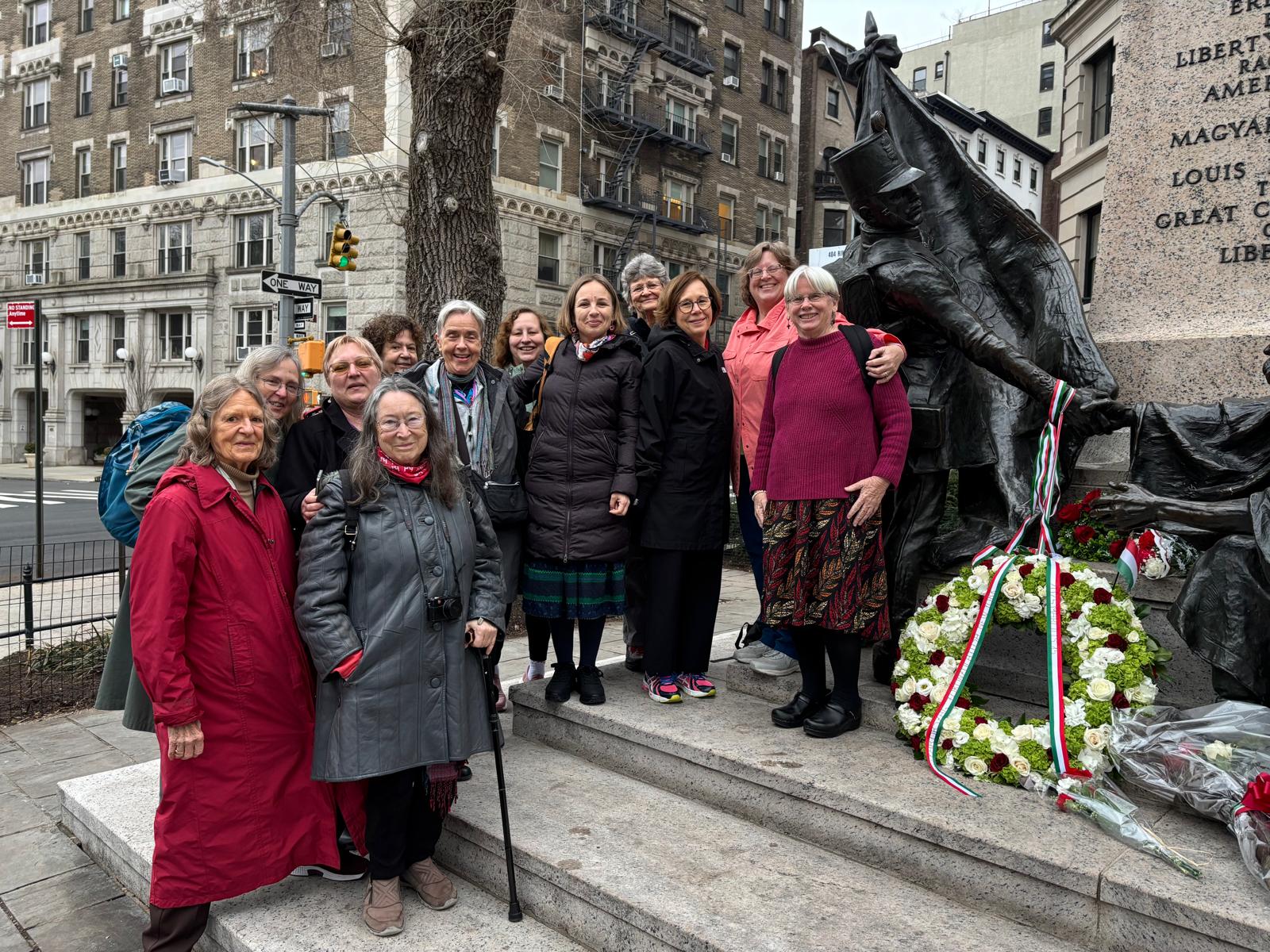
- Details
- By ICUUW Staff
ICUUW Spring Seminar - March 2025
Speaking Up for Liberal Religious Values at the UN During the Commission on the Status of Women (CSW)
March 15-16, 2025 in New York City
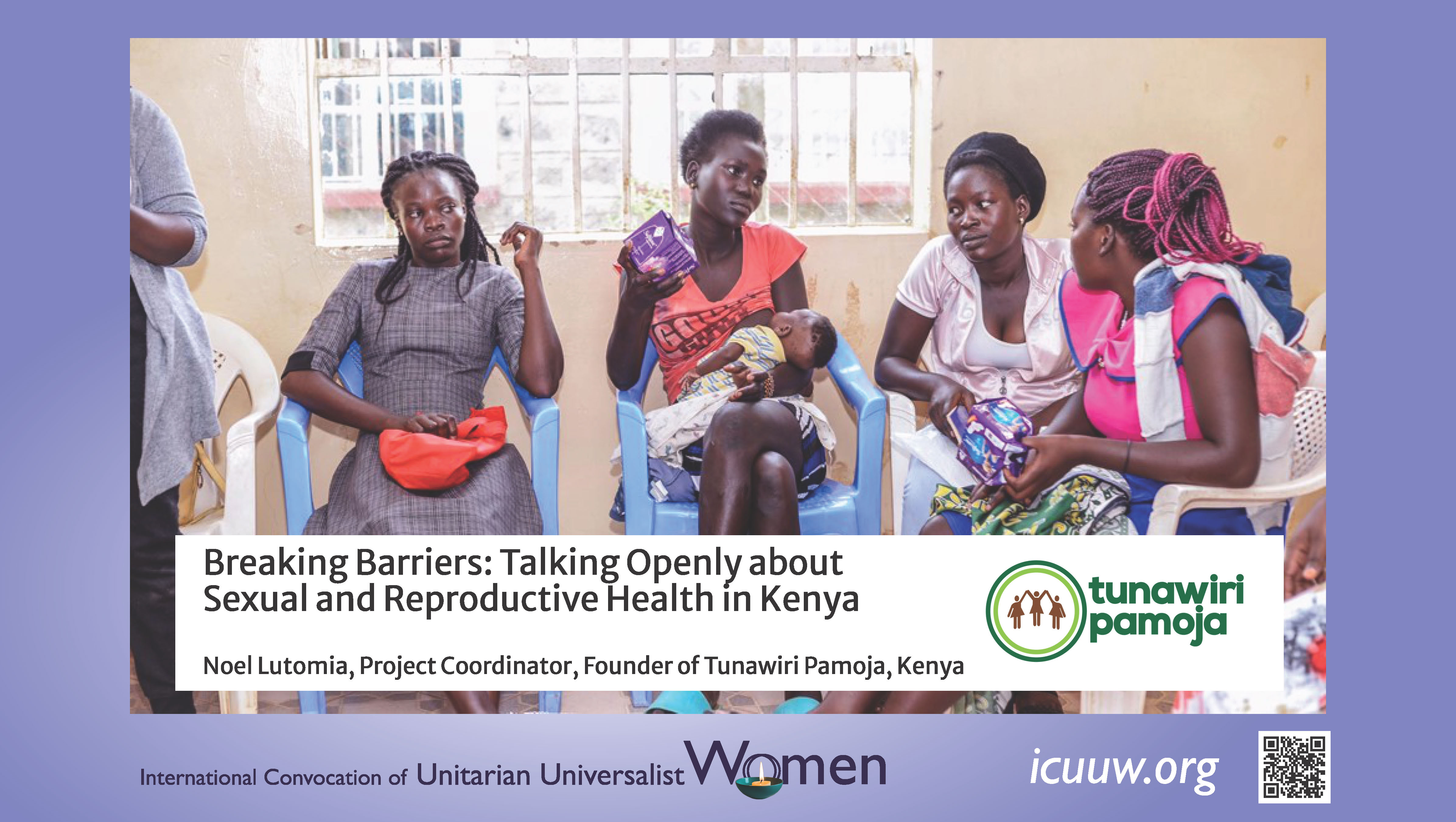
- Details
- By ICUUW Staff
In accordance with our consultative status at the UN, ICUUW fielded a large delegation at this year’s meeting of the UN Commission on the Status of Women (CSW68). We continue to increase our knowledge of the workings of this enormous event. This year Ellen Barfield, Carmen Capriles, Marjorie Davidson, Tina Huesing, Carol Huston, Bruce Knotts, Karen Kortsch, Phyllis Marsh, Beth O’Connell, Genia Peterson, and Julie Steinbach attended in-person sessions at the UN Headquarters; a former Executive Director of the Unitarian Universalist United Nations Office (UU-UNO), Fran Mercer, was with us for dinner and some parallel events.
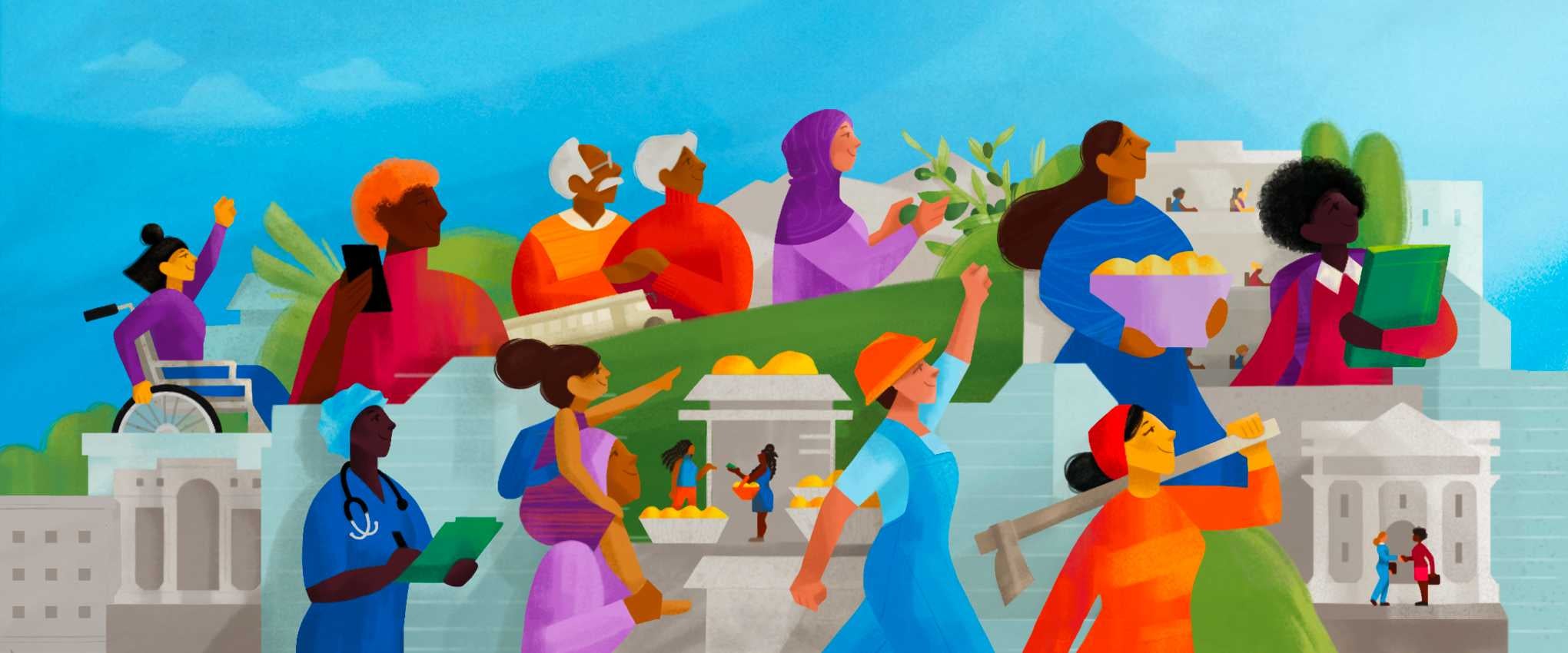
- Details
- By ICUUW Staff
This year, the annual meeting of the CSW took place in person at the UN headquarters in New York and virtually from March 11-22, 2024. The priority theme of the 68th session of CSW (CSW68) was “Accelerating the achievement of gender equality and the empowerment of all women and girls by addressing poverty and strengthening institutions and financing with a gender perspective.” As in previous years, ICUUW had a delegation in New York attending the events in person and hosted two virtual Parallel Events at the CSW NGO Forum.
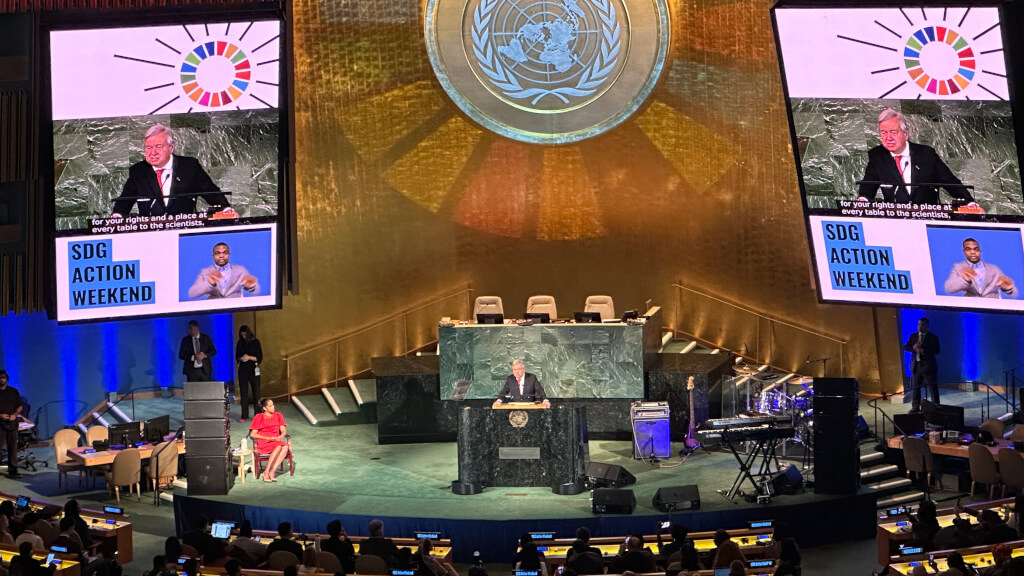
- Details
- By Beth O’Connell, ICUUW’s UN Advocacy Committee, USA
The 17 Sustainable Development Goals (SDGs) set by the United Nations to eliminate poverty and create a more equitable society and a safer environment by 2030 are at the midpoint this year for that target date – and in need of a rescue plan.
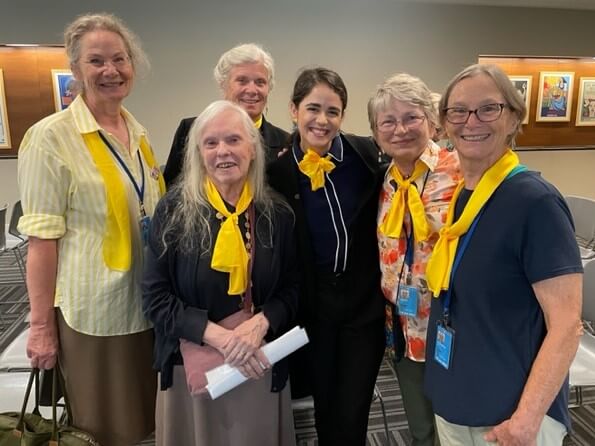
- Details
- By Rev. Carol Huston, Chair, ICUUW’s UN Advocacy Committee, USA
The March meetings of the UN Commission on the Status of Women (CSW) have been our advocacy focus since we began developing a presence at the UN in 2019. Our colleague from Bolivia, Carmen Capriles, who was active at the UN long before that, has urged us to attend other events. This year we did just that: The most significant was participation in the High Level Political Forum (HLPF) in July. Then in September, a few of us attended the People’s Assembly, the Sustainable Development Goals (SDG) Summit, and the March to End Fossil Fuels.

- Details
- By ICUUW Staff
The UN Commission on the Status of Women (CSW), the main global intergovernmental body exclusively dedicated to the promotion of gender equality and women’s empowerment, meets every year in March to consider what needs to be done to improve the lives and the political situation of women around the world. Member states, women’s rights organizations, as well as UN entities gather to discuss the progress and gaps in implementing the 1995 Beijing Declaration and Platform for Action, the blueprint for gender equality.
- Details
- By ICUUW Staff
The Global Gag Rule (also called the Mexico City Policy), first enacted by President Ronald Regan in 1984, prohibits foreign non-governmental Organizations (NGOs) from receiving any U.S. funding if they “perform or actively promote abortion as a method of family planning.” This includes counseling, referrals, or advocacy; U.S. aid would be withheld from organizations receiving U.S. family planning assistance even if a given NGO used their own (non-U.S.) funds or funds donated by another country. This policy is effectively a "gag," blocking access to health care, stifling local advocacy efforts and public debate on abortion-related issues, and undermining reproductive rights worldwide.
- Details
- By ICUUW Staff
The International Convocation of UU Women has voiced solidarity with vulnerable genders in Afghanistan and is increasingly alarmed by reports of eroding human rights in the country. On July 20, 2022, the UN published the following information from their Assistance Mission in Afghanistan:
[The UN Mission] “confirms the erosion of basic human rights across the country since the Taliban takeover in August last year, pointing out they bear responsibility for extrajudicial killings, torture, arbitrary arrests and detentions, and violations of fundamental freedoms.”
- Details
- By ICUUW Staff
The International Convocation of Unitarian Universalist Women unequivocally asserts that reproductive rights are human rights. Abortion is healthcare. It is a moral imperative that any gender with the ability to become pregnant has access to safe and legal care that respects their dignity, privacy, and freedom.
Women in the U.S. have now lost that freedom. On June 24, 2022, the U.S. Supreme Court ruled in Dobbs v. Jackson Women’s Health Organization that the Constitution does not confer the right to abortion, thus overturning Roe v. Wade, a 1973 court case that recognized the right to abortion in the U.S. The U.S. joins Poland, El Salvador, and Nicaragua as the only countries to roll back legal access to abortion in the past three decades. (In the same time period, nearly 50 countries have liberalized their abortion laws, according to the global advocacy group Center for Reproductive Rights.)
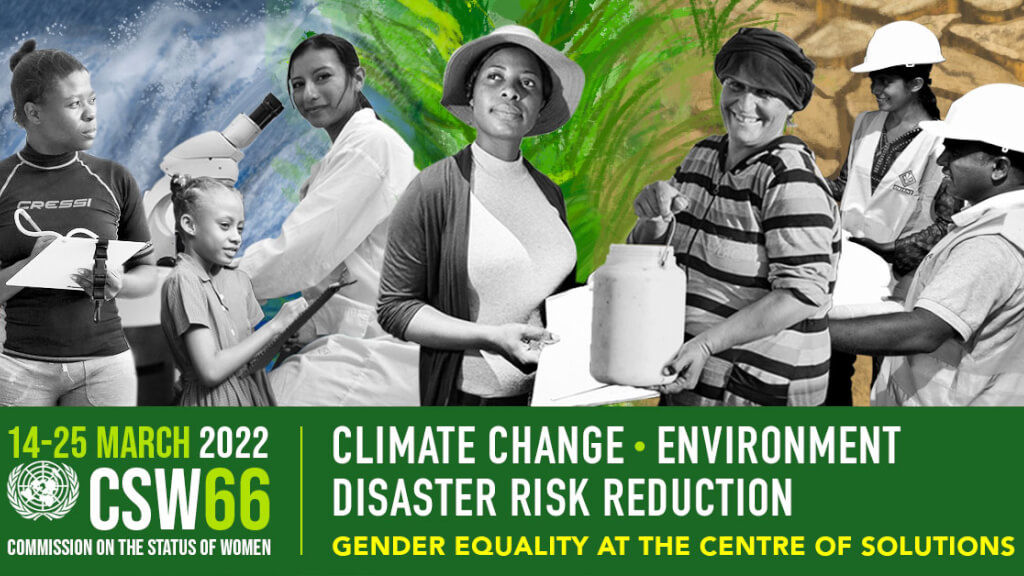
- Details
- By Marjorie Davidson, ICUUW Delegate at CSW66, USA
The Commission on the Status of Women (CSW) meets every March around the United Nations offices in New York City. In pre-COVID-19 times, CSW brought thousands of women to New York for reports, workshops, and networking; in 2021 and 2022, CSW shifted from in-person meetings to virtual formats. In March 2022, more than 15 women from our IWC community attended virtual sessions and events related to CSW.
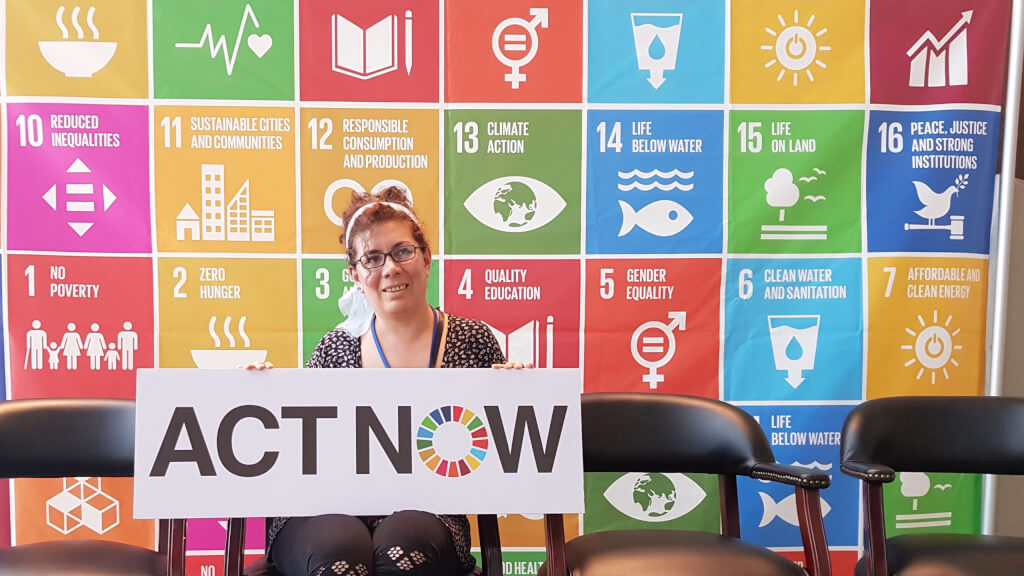
- Details
- By Carmen Capriles
Carmen Capriles, whose home is in La Paz, Bolivia, became involved with the United Nations as a young adult. With academic expertise in agriculture, she set out to learn about and then engage with the UN on climate and land use policies. Almost twenty years later, she generously offered to teach us in IWC how to make the same journey from learning to influence, in the crowded world of advocacy at the UN.
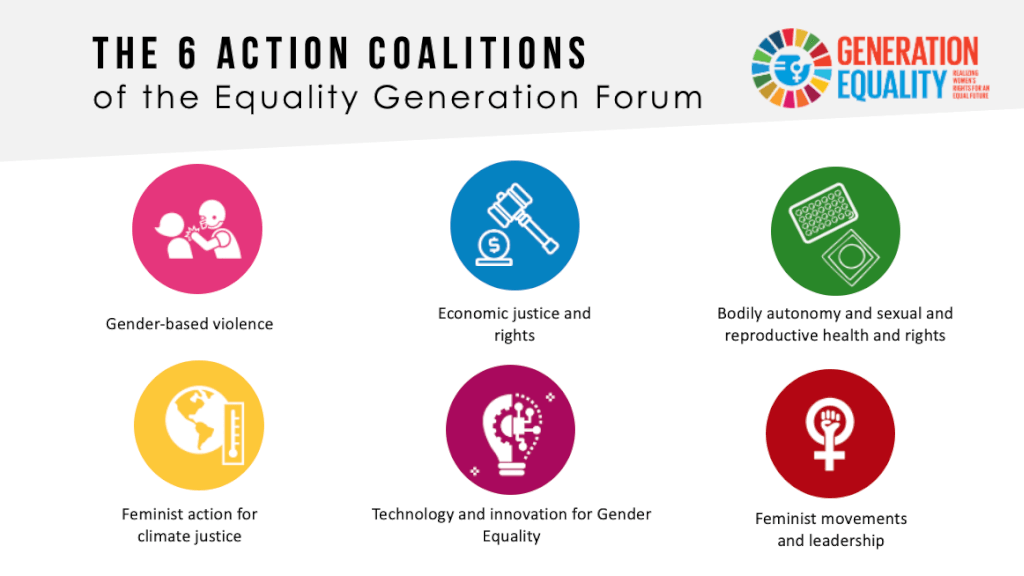
- Details
- By ICUUW Staff
The UN-sponsored Generation Equality Forum in Mexico City, held online from March 29 to 31, 2021, unveiled the Global Acceleration Plan for Gender Equality. The plan – to be launched at the follow-up Forum in Paris at the end of June – represents the draft roadmap to speed up progress on gender equality.
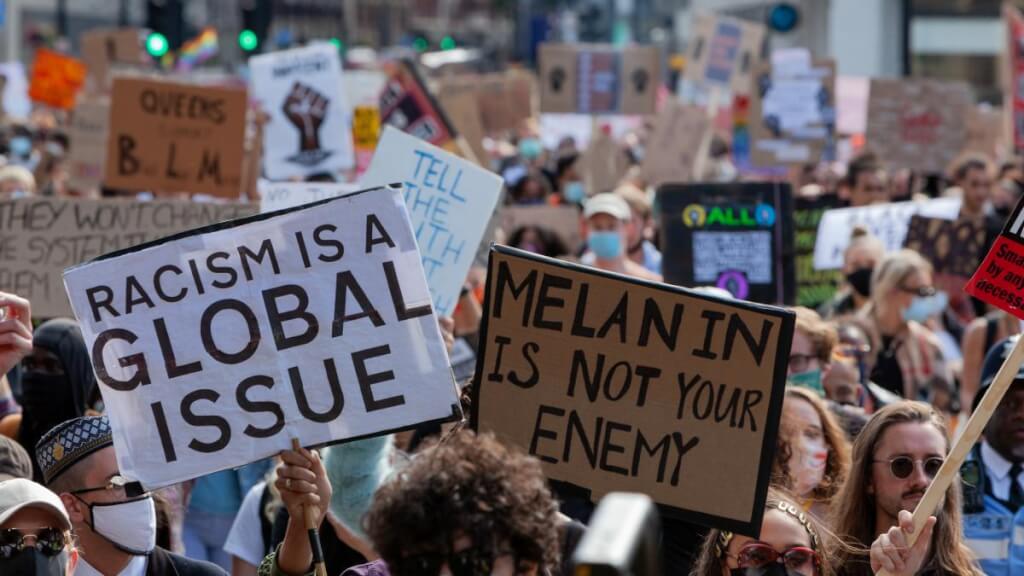
- Details
- By ICUUW Staff
The International Convocation of Unitarian Universalist Women works in partnership with grassroots women's groups, regardless of race or ethnicity, which share our Unitarian and Unitarian Universalist values.
“Wherever we see racism, we must condemn it without reservation, without hesitation, without qualification.” ANTÓNIO GUTERRES, United Nations Secretary-General, 2021
The International Day for the Elimination of Racial Discrimination is March 21. The International Day for the Elimination of Racial Discrimination is observed annually on the day the police in Sharpeville, South Africa, opened fire and killed 69 people at a peaceful demonstration against apartheid "pass laws" in 1960.
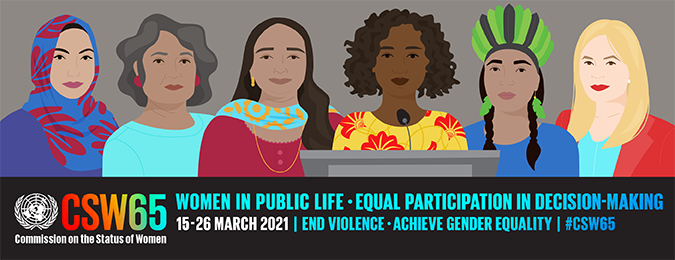
- Details
- By ICUUW Staff
Overview of the Sixty-Fifth Session of the Commission on the Status of Women (CSW65)
15 to 26 March 2021
By Genia Peterson, ICUUW Representative at CSW65
More than 25,000 individuals from around the world registered to virtually attend the 700 civil society-led parallel events. In addition, they could also participate in 200 events sponsored by UN member states.
The priority theme of the CSW65 was women’s full and effective participation and decision-making in public life, as well as the elimination of all forms of violence against women and girls, for achieving gender equality and the empowerment of all women and girls.
- Details
- By ICUUW Staff
The global lockdowns, triggered by the COVID-19 pandemic, created environments that increased the incidence and severity of violence against women and girls (VAW/G).
Confinement and restriction of movement fostered tension, distress, and worries for everyone, but they trapped women with abusive partners. Too often, women were unable to access resources and support systems because many of the organizations dedicated to helping victims of violence were unable to operate. The economic fallout and the additional demand for services forced shelters for victims of domestic violence to find ways to stay open even as many operated near capacity.
The global upsurge of VAW/G prompted Phumzile Mlambo-Ngcuka, former Executive Director of UN Women to declare it a “shadow pandemic” that must be urgently addressed. UN Secretary-General António Guterres has called for all governments “to make the prevention and redress of violence against women a key part of their national response plans for COVID-19.” Facing this shadow pandemic, each of us, from individuals to communities to governments, from the private sector to civil society to police and justice services, has a responsibility to act.